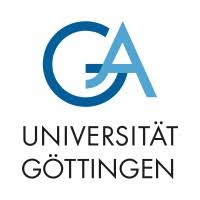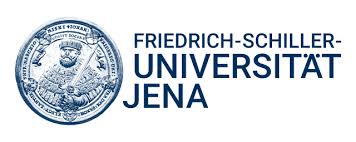You’re using the old Program Database. The new StudyBuddy Database is live with updated courses and a wishlist to save your programs.
Step 1 - Find your Study Program

Dresden University of Technology
Dresden
Organic & Molecular Electronics
Subjects: Organic Electronics;Molecular Electronics
M.Sc. | Master of Science
Course description
The relentless drive towards miniaturization in microelectronics is ushering in an era where systems are better described as nanoelectronic systems. These advanced systems open up a plethora of applications, yet their design and implementation are becoming increasingly intricate. This complexity spurred the creation of the Master's degree course "Nanoelectronic Systems." This program zeroes in on three pivotal areas: - Technologies for Nanoelectronic Systems - Design of Nanoelectronic Systems - Applications of Nanoelectronic Systems The course also delves into the interconnections and dependencies among these core areas. Resource efficiency is a critical theme across all three specializations. The curriculum doesn't just focus on traditional scaling, known as "More Moore," but also explores innovative concepts under "More than Moore" and "Beyond Moore." By addressing these areas, the program aims to equip students with the knowledge and skills needed to navigate and excel in the evolving landscape of nanoelectronics.
Program Information
| Study Location | Dresden |
| Start Semester | Winter |
| Study Form | Full-time |
| Study Type | Postgraduate |
| Teaching Language | English |
| Dual | No |
| Remote | No |
| Application Fee non-EU | 75 EUR |
| Study Length | 4 Semesters |
| Tuition Fees per Semester | No Tuition Fee |
| Cost per Semester | 290 EUR |
Step 2 - Check Application Requirements
Application Requirements
Language Requirements
| CEFR | C1 |
| IELTS | 7 |
| Cambridge (CAE) | No information |
| TOEFL IBT | 95 |
Good command of the English language. If English is not the native language of the applicant, a certificate of proficiency at level C1 or CEFR must be presented (e.g., by an internationally available test, preferably IELTS: 7.0, TOEFL: 550 points / iBT 95 points).
Qualification Requirements
In Germany recognised university degree that qualifies for a profession in a natural science or engineering field, or any other university degree that qualifies for a profession in a study course with comparable skills' acquisition, especially in higher mathematics. • Good command of the English language. If English is not the native language of the applicant, a certificate of proficiency at level C1 or CEFR must be presented (e.g., by an internationally available test, preferably IELTS: 7.0, TOEFL: 550 points / iBT 95 points). • Proof of special aptitude to study for the Master's program: Organic and Molecular Electronics. This includes sound knowledge of the basics of classical physics with mechanics, Electrodynamics, optics, thermodynamics, and quantum theory, as well as good knowledge of the composition of matter.
Document Requirements
Application form on the website of the department • Appropriate officially authenticated certificates and documents • Proof of English language skills (e.g. UNIcert III, CAE)
Application Process
| Acceptance Interview | No |
| Acceptance local admission restrictions | Not restricted |
| Application |
directly at the University, uni-assist |
Step 3 - Get studying insights
Your Free StudyBuddy Checklist
Making your move to Germany easy
-
Simplified step-by-step Checklist
-
Track progress and complete tasks on the go
-
Direct access to webinars and resources
-1.png?width=1179&height=1764&name=image%20(6)-1.png)

Free Live Webinar
How to Study in Germany for Free
Get ready to study in Germany!
February 26th, 2026
-
Learn how to find your ideal program
-
Step-by-step application guide
-
Tips and tricks to get admission
Step 4 – Apply for a Visa

German Visa Guide
Your tailored German visa application guide
Be Prepared for Your Visa Appointment
Value Package
-
GERMAN BLOCKED ACCOUNT
-
Accepted by all German authorities
-
Instant blocked amount confirmation once funds are received
-
TRAVEL HEALTH INSURANCE / INCOMING INSURANCE
-
Free coverage worth up to €953. Mandatory for your visa
-
GERMAN HEALTH INSURANCE
-
Award-winning, affordable cover for visa, university, and life in Germany4
-
Up to €90 cashback with your personalized insurance2
-
FREE GERMAN BANK ACCOUNT
-
Instant access to monthly payouts + automatically connected to your Blocked Account
-
Free digital bank card ready to use worldwide. Apple + Google Pay.
-
ADDITIONAL FREE BENEFITS
-
Free International Student ID Card (digital) with thousands of discounts1
-
In-app accommodation access
-
COST BREAKDOWN
-
Monthly fee: Only €5
-
Blocked Account set-up fee: €89








